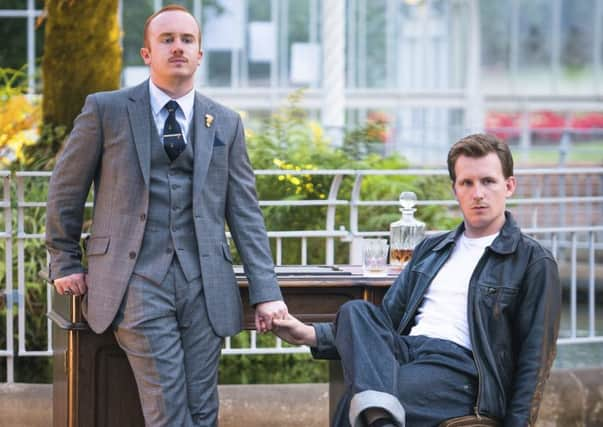Theatre reviews: Edward II & Much Ado About Nothing, Botanic Gardens, Glasgow


Edward II ****
Much Ado About Nothing ***
So it was a fine and moving experience, if not always a subtle one, to watch Gordon Barr’s Kibble Palace revival of Marlowe’s play on the evening of this year’s huge Pride march in Glasgow. At times, Barr’s 1950s-style staging for just four actors – accompanied by a fitfully blaring backing-tape of gorgeous 20th-century torch-songs – seems more interested in driving towards its angrily political conclusion, featuring soundbites of key moments in recent gay history, than in the detail of Marlowe’s story. Yet the sheer force of the bond between Edward and Gaveston is poignantly captured by Laurie Scott and Charlie Clee as the lovers; and with Esme Bayley and Andy Clark offering strong support as Edward’s spurned wife Isabella and the rebel Lord Mortimer, this Edward II emerges as a rough-edged but heartfelt tribute to a play whose boldness in celebrating gay love remains striking today and must, in its time, have been truly astounding.
Out in the garden, meanwhile, Jennifer Dick’s new production of Much Ado About Nothing – the last of this year’s four Bard in the Botanics shows – takes a relatively conventional approach to Shakespeare’s much-loved comedy; but despite a world-class Beatrice in Nicole Cooper and a pretty fine Benedick in Adam Donaldson, it somehow struggles to make much of a case for itself or for the play.
Advertisement
Hide AdThe show does have a production idea, involving transforming the city of Messina, where the action takes place, into a circus. Sadly, though, it’s a notion so completely irrelevant to the play – which is about a macho army returning from war to a peaceful town full of marriageable young women – that it functions, in the end, only as an excuse for a few colourful if irrelevant costumes and a pretext for an outrageous, show-strangling performance from Darren Brownlie as a pompous Dogberry in an acrobat outfit.
Some of the circus foolery is mildly entertaining in itself; but in the end, it has a subtly undermining effect on a play which has been surviving on its own wit and merits for more than 400 years, and hardly needs some bolted-on big-top pzazz to help sell it to the public.
Until 28 July